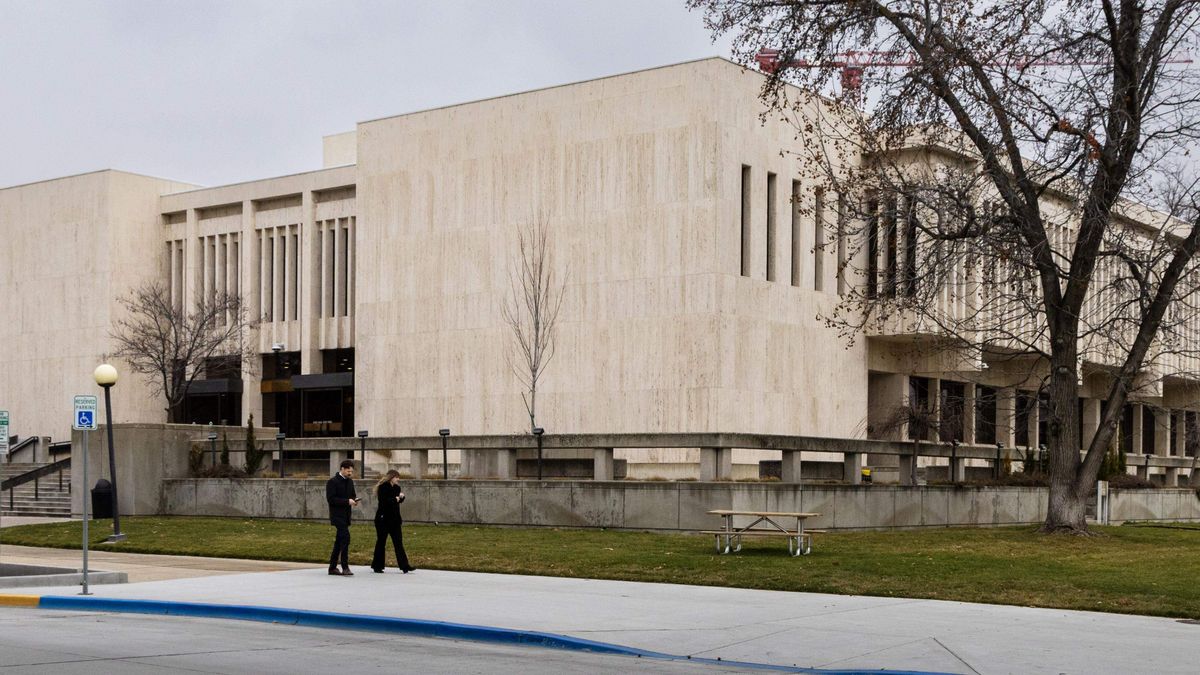By David Voreacos, Bloomberg News (TNS)
The former IRS contractor who admitted stealing and leaking the tax returns of former President Donald Trump and other billionaires acted out of a “deep, moral belief” that Americans had a right to the information, his lawyers told a judge.
Charles Littlejohn, 38, pleaded guilty Oct. 12 to stealing Trump’s tax data from the Internal Revenue Service and leaking it to The New York Times. He also stole tax information about wealthy Americans—including Ken Griffin, Elon Musk and Jeff Bezos—that he passed to ProPublica. Littlejohn will be sentenced Jan. 29, and prosecutors have urged he get the maximum of five years in prison.
In their sentencing memo submitted to the judge, Littlejohn’s lawyers said he was alarmed when Trump took office in 2017 and refused to make his tax records public—a break from tradition over the previous four decades. That year, Littlejohn was rehired by an IRS consultant and vowed to “try to access the President’s tax returns if given the opportunity,” they said.
“He committed this offense out of a deep, moral belief that the American people had a right to know the information and sharing it was the only way to effect change,” his lawyers wrote in the memo filed Wednesday. Littlejohn now “recognizes the grave impact of his actions not only on the victims whose tax data he leaked to the media, but also on the very system that he hoped to improve.”
Before Littlejohn’s data theft in 2018, several events “made him feel he did not have any other choice but to act,” including the appointment of Charles Rettig as IRS Commissioner, the defense lawyers said. Rettig backed Trump’s decision to withhold his returns. After stealing 15 years of Trump’s tax records, Littlejohn met with New York Times reporters.
Littlejohn first gave the tax data to the Times in August 2019, helped the news organization analyze the data and then stole additional tax records, the filing said. In September 2020—weeks before Trump lost the election to Joe Biden—the Times published the first of several stories, revealing the former president paid $750 in federal income taxes in 2016 and 2017, and no taxes in 10 of the previous 15 years.
While helping the Times, Littlejohn became “increasingly focused on the systemic inequality” of ultra-high-net-worth Americans paying relatively little in taxes, the filing said. A book on income inequality had “a profound impact” on him, and he concluded an in-depth investigative report of the tax histories of the ultra-wealthy “might be the one way to cause meaningful change to reform the tax system.”
In 2020, he stole data on the top 500 taxpayers by income for the previous 15 years, later leaking it to ProPublica. It reported that billionaires including Bezos and Musk had in some years paid minimal or no income tax even as their fortunes soared. It outlined the tax strategies available to Americans in the top 0.1% of wealth. Michael Bloomberg, majority owner of Bloomberg News parent Bloomberg LP, was among those included in the reporting.
Littlejohn then “began to realize the gravity of what he had done,” his lawyers said in the filing. “He originally acted out of a sense of moral duty, but soon came to understand that his conduct was morally wrong. Instead of saving the tax system, his actions had undermined the IRS, breached the public trust, and violated the privacy of thousands of American taxpayers.”
His lawyers urged U.S. District Judge Ana Reyes to sentence Littlejohn to less than five years. They said his case was less severe than 14 others involving leakers.
Prosecutors said in a separate sentencing memo that Reyes should impose the maximum term because Littlejohn’s disclosures appear “unprecedented in the IRS’s history.” The impact is “enormous,” they said.
“He executed his disclosure scheme over the course of multiple years, plotting and calculating carefully at each step to minimize the risk of detection and maximize the impact of his disclosures,” prosecutors wrote. “He reorganized his entire life around this crime,” rejoining the consulting firm “with the goal of getting access” to Trump’s tax information, the government said.
Littlejohn worked as a contractor for the same firm from 2008 to 2010, 2012 to 2013, and 2017 to 2021, court records show. The firm wasn’t identified.
The case is US v. Littlejohn, 23-cr-00343, US District Court, District of Columbia.
______
©2024 Bloomberg L.P. Visit bloomberg.com. Distributed by Tribune Content Agency LLC.
Thanks for reading CPA Practice Advisor!
Subscribe Already registered? Log In
Need more information? Read the FAQs




